Eiichiro Oda has been known to give his readers subtle hints on how the future events may unfold in One Piece. Because of this unique trait, his fans have been carefully looking at every chapter that has been released since the start of the final saga as the story is slowly building to its conclusion.
Therefore, when we know that King Harald’s death was not caused by Loki, many readers had a theory that it was Imu who masterminded this plan. And since that theory has surfaced, it seems like the creator has left obvious hints.
The theory is that Imu possessed King Harald, and Loki was forced to kill him to save Elbaph. As evidence mounts, this theory not only clarifies past plot points but also adds layers to the saga’s central themes of freedom, power, and manipulation. We know that Imu has an ability known as Domi Reversi.
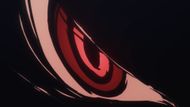
Interestingly, this ability allows the user to possess individuals, reverse their personalities, and control them like puppets. The vessel used in this case was Gunko, who suddenly adopted a demonic persona and turned against her fellow giants.
Now that we know that Imu is capable of taking over one's mind, this led fans to speculate: could Imu have done the same to King Harald in the past?
The implications are profound. If Harald was possessed, his increasingly erratic behavior leading up to his death, his ideological shift, and the violent end at the hands of his own guards could all be reinterpreted. Rather than a tragic fall from grace, it becomes a story of political assassination disguised as madness.
Loki didn’t want to kill his father in One Piece
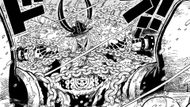
Loki’s character arc has been portrayed with growing sympathy. Initially introduced as a brash and mysterious figure, recent flashbacks suggest a deeper internal conflict. In particular, Loki never explicitly admits to killing his father. Instead, he implies he was forced to take action.
Now that we’ve seen what Domi Reversi can do, it’s entirely plausible that Loki recognized his father was no longer in control of his own body. This would also explain why Loki harbors such intense hatred for Mariejois and the World Government.
He may not just be seeking vengeance for political subjugation but for a deeply personal betrayal—the loss of his father to an unnatural force.
One Piece Chapter 1152 and the guards’ betrayal
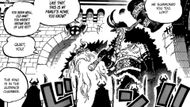
In One Piece Chapter 1152, we finally see a visual of Harald’s death. Contrary to long-standing assumptions, it wasn’t Loki who dealt the fatal blow; it was Harald’s own guards. This shocking twist opens the door for a reinterpretation. Why would guards kill a king beloved for ushering in peace?
Unless they weren’t in control either. If Harald were possessed, he might have turned violent or issued harmful orders. Alternatively, if they were possessed, they might have acted on Imu’s command to eliminate a king who no longer served the World Government’s interests.
What This Means for Loki
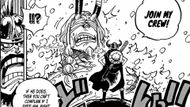
Loki’s redemption arc in One Piece may hinge on this revelation. For years, he has carried the stain of patricide. His people revile him. But if it’s revealed that he acted to stop a possessed Harald, his image would be completely rewritten. He would go from traitor to martyr. From fallen prince to freedom fighter.
This shift could pave the way for Loki to join the Straw Hat Pirates, a long-rumored fan theory. With a vendetta against Imu and knowledge of the World Government’s most insidious crimes, Loki could become a pivotal ally in the final saga. And just like Robin, Law, and Jinbe before him, his tragic past would make him one of the most compelling members of the crew.
Why Imu didn’t possess all of Elbaph in One Piece
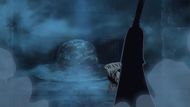
The answer may lie in ritualistic requirements. Perhaps possession needs a mark, a contract, or a moment of consent. That would explain why Imu selectively targets individuals, Gunko, Harald, maybe even Lili, and not entire populations.
One Piece has always explored the balance between freedom and tyranny, and Imu’s power is the most terrifying manifestation of the latter. They don’t just rule in secret; they rule from within.
Harald’s tragic arc, from proud prince to peaceful king to possessed victim, may be the clearest example yet of what Imu represents. And Loki’s role in all of this, once seen as a dark stain on his character, now emerges as an act of desperate heroism.
If this theory proves true, it will redefine one of the most important arcs in One Piece history. And it will make Imu’s final reckoning with Luffy and his allies not just a battle of power, but a battle for the soul of the world.
